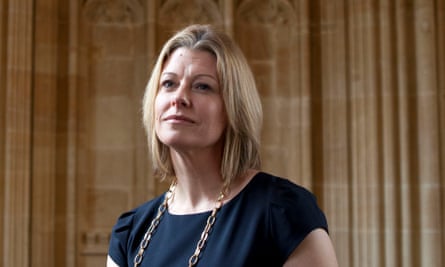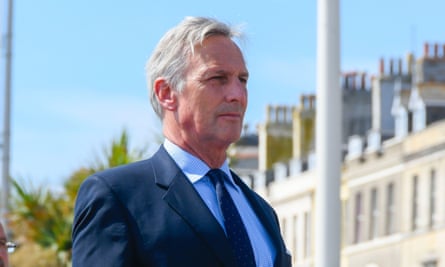We whose ancestors owned slaves want to make amends – but nations must also pay their due | Alex Renton
What do you do when you discover your family got rich through slavery? For Laura Trevelyan, the BBC correspondent whose ancestors owned more than 1,000 enslaved people in Grenada, the answer was simple. She and her family started discussions with people on the island, and now she has given £100,000 towards an economic development fund. The Trevelyans will apologise formallyfor the lives ruined and wasted by their ancestors’ greed.
So why doesn’t everyone – and there are hundreds of thousands in Britain with the same history – do a little digging and say sorry?
The digging, as I found when I began looking at my own family’s story of plantation owning and slave trading, is the easy bit. You start with the compensation records, organised by University College London’s Legacies of British Slavery database: a comprehensive list of everyone who owned enslaved people in the British Caribbean in the early 1830s. It was drawn up as legal British slavery there came to an end, after some 250 years. To get the abolition legislation through parliament required a bribe to the slave owners – compensation for giving up their human “property”
The bill to the British taxpayer was £20m – estimates of its value today range between £17bn and £100bn. It was funded by the largest loan taken out by government in the entire 19th century.

Forty-six thousand people got a share of the payout. They included the Trevelyans and my ancestors, the Fergussons – wealthy landowners and lawyers (plus one politician) in 18th- and 19th-century Scotland. Their compensation was calculated on the 198 enslaved people then living on the sugar plantation they co-owned, Rozelle, in St Thomas parish, Jamaica. The money the Fergussons and their partners, the Hunter Blairs, got was considerable: £3,591, a little over £3m today.
It’s not clear exactly how it was spent. Sir Charles Dalrymple Fergusson, then head of the family and my great-great-great-grandfather, was a philanthropist, a builder of churches and schools – in Scotland. He built nothing for the ex-enslaved in Jamaica: they did not get a single acre at Rozelle on which to begin their free lives. The 700,000 people freed in the British Caribbean – survivors of over 2.3 million Africans brought there – got no compensation at all.
I lived in ignorance of this history until just five years ago. But I now know that Sir Charles Fergusson, and other ancestors, exploited enslaved African people in Jamaica and Tobago for three generations. It wasn’t all they did – but it was the most significant part of it, an act that still toxifies British society today.
I am their descendant, and I’m marked by my ancestors’ deeds, though in no way as traumatically as those whose forbears were enslaved. Obviously, we heirs of slavery are the lucky ones. The money that my ancestors made was spent long ago, the mansion most associated with them given to the National Trust. But I carry the privilege that wealth and power engenders for generations.
We whose ancestors felt morally able to enslave people on grounds of their race do not ourselves experience racism now. There’s another disparity: I know my forebears, and how they lived. Most descendants of the enslaved only know that theirs came from Africa and suffered, for generations.

In 2019, I visited Jamaica and Tobago to see the sites of the plantations and talk to people there about what my ancestors did. I wrote a book, not for profit. Since then some of my family have been donating to charities and educational organisations in the Caribbean and in UK.
To people like us, the Trevelyans, David Harewood of the Lascelles family and a dozen others I know of, these token efforts of personal reparation are a necessity. They are above all for our own healing. Of course this can offend. “Self-pitying virtue signalling,” you get told – mainly by white people – and that narratives of reparation perpetuate the notion of Black people as victims. Barbara Blake Hannah, the Jamaican author, has said that in the face of the millions made in compensation money in 1834, the Trevelyan £100,000 is “a very small contribution”.
That’s true. But how do you begin to compensate for the destroyed lives of, on the Fergussons’ plantations, more than 900 people? For their descendants, left to live in poverty, without rights, when slavery ended? The money is literally the least we can do.
There are many more heirs of slavery who find denial or wilful ignorance an easier option. Others are already facing a very public and uncomfortable spotlight. The MP Richard Drax, owner of a vast ancestral estate in Dorset, still owns Drax Hall, the plantation in Barbados where his ancestors helped invent industrialised sugar planting using enslaved Africans as labour in the 1620s. He has a particular view. “I am keenly aware of the slave trade in the West Indies, and the role my very distant ancestor played in it is deeply, deeply regrettable, but no one can be held responsible today for what happened many hundreds of years ago. This is a part of the nation’s history, from which we must all learn,” he has said.
It is rare that he discusses the legacy in public.
“If we start paying people off for ancient crimes, where will it all end?” I am asked at book festivals. In Ireland, the question of apology for a Trevelyan ancestor’s role in the 1840s famine has been raised. The answer seems obvious. If more British people address their ancestors’ part in the looting and licensed murder of empire, we might end up saying sorry. There is no other way to begin to make peace with this history and the people whose ancestors we exploited: years of ignoring it has not worked. The wound in Britain left by transatlantic slavery and the racism that enabled it is still festering today.
Meanwhile, in the Caribbean some of the richest British slave-and-sugar colonies of the 19th century, like present-day Guyana, are now among the poorest countries in the hemisphere.
Token personal reparations are at the very least a start – a route to a discussion of reparative justice by the nations that were involved. After all, I can see from my ancestors’ accounts that they paid more from their slave-driven businesses to the British government in tax than they ever made in profits. Caricom, the Caribbean nations’ group, requested talks about reparation and reconciliationwith 11 European nations back in 2014. Some have listened – not Britain.
Alex Renton’s Blood Legacy: Reckoning With a Family’s Story of Slavery is published by Canongate“
No comments:
Post a Comment